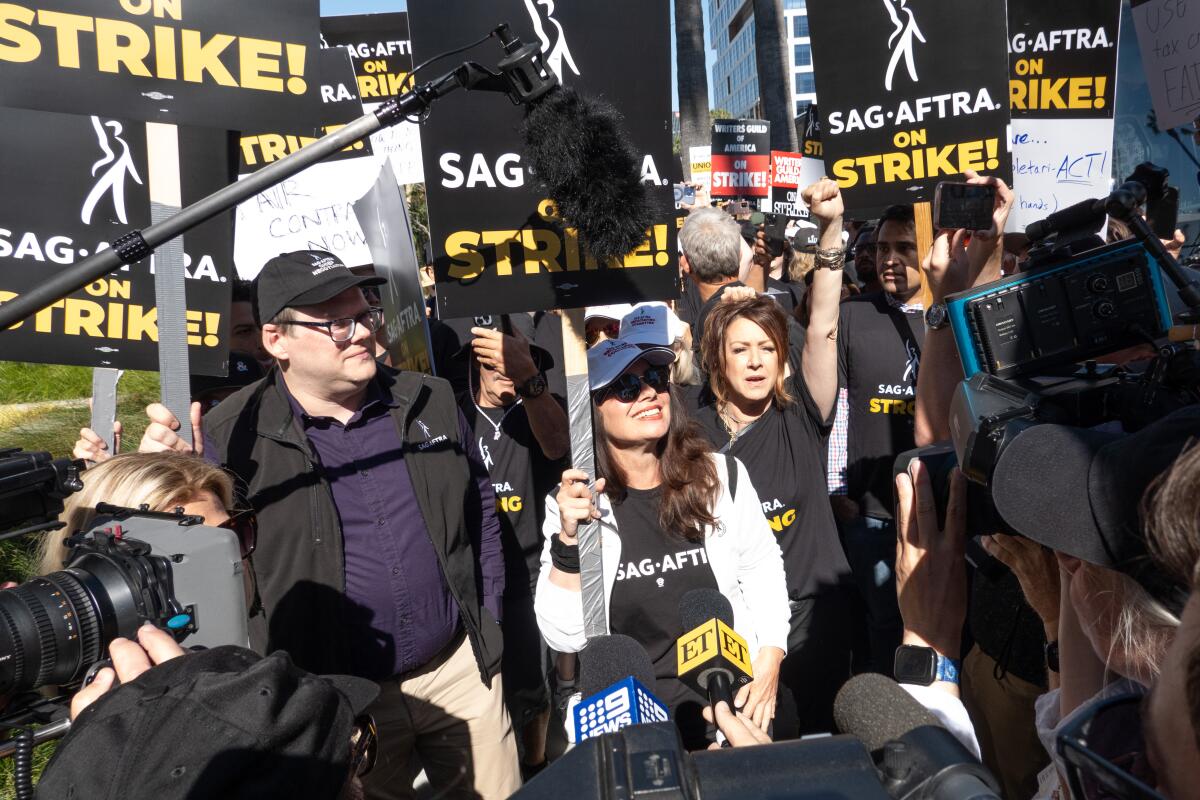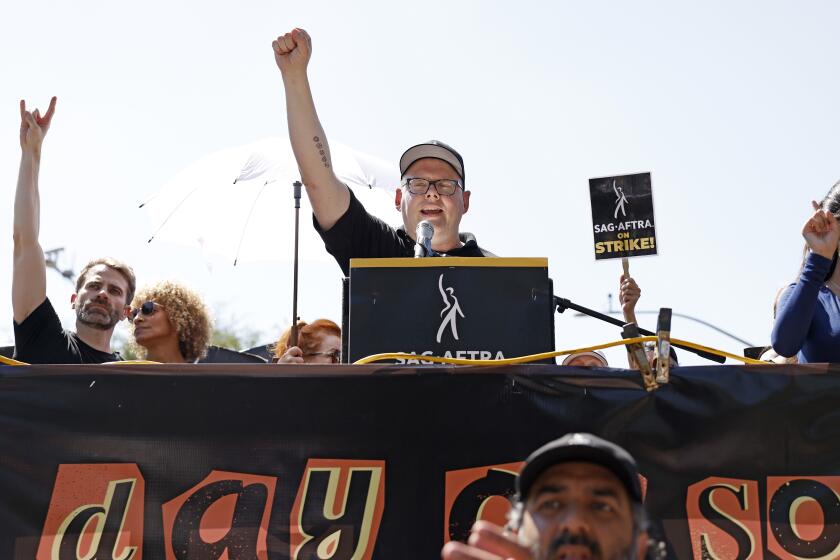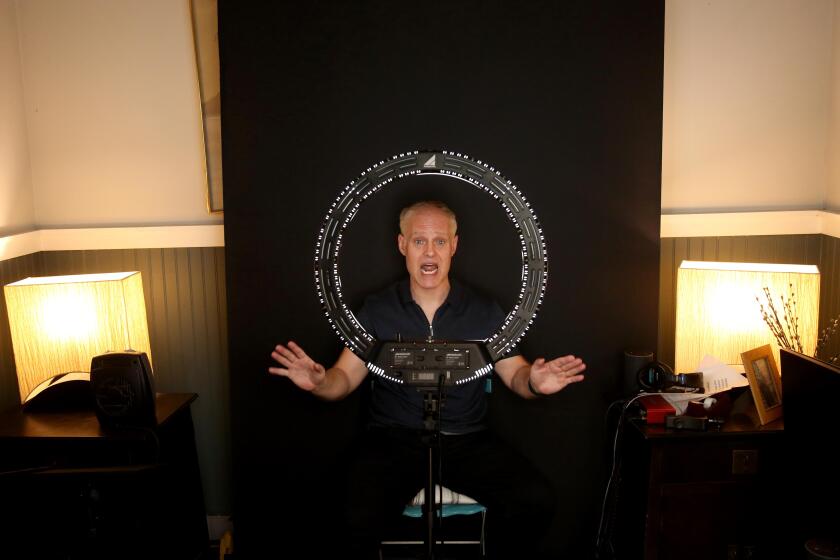Video game actors are going on strike after contract talks fail over AI terms

- Share via
Video game performers are going on strike for the second time in a decade.
Duncan Crabtree-Ireland, national executive director and chief negotiator of performers union SAG-AFTRA, called a strike Thursday on behalf of thousands of video game actors covered by the Interactive Media Agreement. The strike takes effect at 12:01 a.m. Friday.
The announcement came days after the national board of the Screen Actors Guild-American Federation of Television and Radio Artists granted Crabtree-Ireland the authority to initiate a walkout and nearly a year after union members voted overwhelmingly to authorize a strike.
On Saturday, SAG-AFTRA warned that a work stoppage was imminent if the union and the video game producers could not iron out contract terms related to artificial intelligence.
“We’re not going to consent to a contract that allows companies to abuse A.I. to the detriment of our members. Enough is enough. When these companies get serious about offering an agreement our members can live — and work — with, we will be here, ready to negotiate,” SAG-AFTRA President Fran Drescher said in a statement.
SAG-AFTRA’s board has given its national executive director and chief negotiator Duncan Crabtree-Ireland the authority to call a video game strike.
The Interactive Media Agreement — a contract covering roughly 2,600 performers who do voice-over and motion-capture work in the video game industry — expired in November 2022.
“We are disappointed the union has chosen to walk away when we are so close to a deal, and we remain prepared to resume negotiations,” Audrey Cooling, a spokesperson for the video game producers, said in a statement.
“We have already found common ground on 24 out of 25 proposals, including historic wage increases and additional safety provisions. Our offer is directly responsive to SAG-AFTRA’s concerns and extends meaningful AI protections that include requiring consent and fair compensation to all performers working under the IMA. These terms are among the strongest in the entertainment industry.”
Game actors are seeking a new deal that would require producers to obtain their consent before reproducing their voices or likenesses with AI. They also have demanded compensation when AI is used to replicate their performances, as well as wage increases, more rest time and set medics for hazardous jobs.
Performers in the video game industry say they are especially vulnerable to AI due to the invisible nature of voice-over work.
SAG-AFTRA members will vote this month on whether to authorize union leaders to call a strike against video game companies. Here’s how we got to this point.
“Our resolve is unwavering and should not be tested,” Crabtree-Ireland said in a statement released Saturday.
“We are steadfast in our commitment to our membership who work this contract and whose extraordinary performances are the heart and soul of the world’s most popular video games. Time is running out for the companies to make a deal.”
Cooling replied that the companies were negotiating “in good faith” and pointed out that the two parties had “reached tentative agreements on the vast majority of the proposals.”
“Based on that progress, we remain optimistic that a deal is within reach,” she said.
The largest actors union in Hollywood officially called a strike Friday against several prominent video game companies after the two sides failed to agree on how to pay performers who do voice-over and motion-capture work for popular games.
Video game actors last went on strike in October 2016, before AI was a major concern.
Back then, performers were seeking residual-like payments based on the number of physical and digital game copies sold — similar to how film and TV actors are compensated for their work.
Both residuals and AI emerged as sticking points during last year’s strike by Hollywood actors. That walkout lasted 118 days and culminated in an agreement containing wage increases, AI protections and streaming bonuses, among other gains.
More to Read
Inside the business of entertainment
The Wide Shot brings you news, analysis and insights on everything from streaming wars to production — and what it all means for the future.
You may occasionally receive promotional content from the Los Angeles Times.













